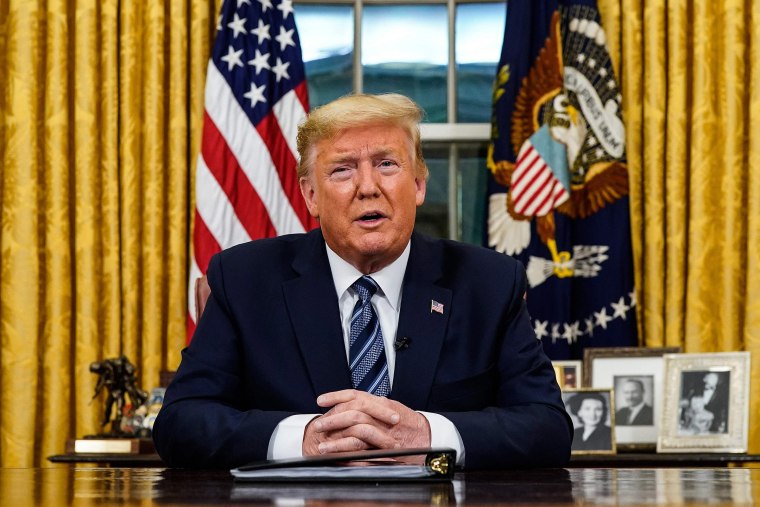Following Donald Trump's Oval Office address on the federal response to the coronavirus outbreak, the Washington Post had a report with a striking sentence:
Although he read from a prepared script as he delivered a rare prime-time televised address to the nation from the Oval Office, Trump incorrectly described his own policy.
That, unfortunately, is an accurate description of what transpired. The president said, for example, "To keep new cases from entering our shores, we will be suspending all travel from Europe to the United States for the next 30 days." That's not necessarily wise -- even Trump's own former homeland security advisor has said this won't make much of a difference -- and given the wide number of exceptions, what the Republican said wasn't even an accurate description of the policy.
He added that prohibitions will apply to "tremendous amount of trade and cargo," but that wasn't true, either, and White House officials "scrambled" last night "to fix his apparent misstatement."
Trump went on to tell the public, "Earlier this week, I met with the leaders of health insurance industry who have agreed to waive all co-payments for coronavirus treatments, extend insurance coverage to these treatments, and to prevent surprise medical billing." A spokesperson for America's Health Insurance Plans (AHIP), the leading trade association for the nation's private health insurers, soon after clarified to a Politico reporter that the president didn't get this right, either: insurers waived co-pays for coronavirus testing, but "not for treatment."
I'm sympathetic to the fact that people sometimes misspeak. I do it all the time. But in the midst of a public-health crisis, with a president literally reading pre-written words from a screen, with an anxious public hoping to get a sense that their leaders are prepared to properly address the emergency conditions, it's not a great sign when the White House has to spend the evening clarifying that Donald Trump didn't exactly mean what he said in an Oval Office address.
What's more, the factual errors weren't the only problem with the address. The president also seemed to go out of his way to label COVID-19 a "foreign virus" -- in literally his first sentence, Trump emphasized that the outbreak "started in China" -- which served as a reminder that Stephen Miller helped write the remarks.
The president also delivered a deeply defensive speech, spending a significant chunk of the 11-minute address talking about how impressed he is with his administration's response to the crisis.
A Washington Post analysis added, "What Trump's speech didn't include was any significant announcement about controlling the spread of the virus inside the United States." And since that was ostensibly the point of the address, it suggested the president doesn't know what to do to control the spread of the virus inside the United States.
